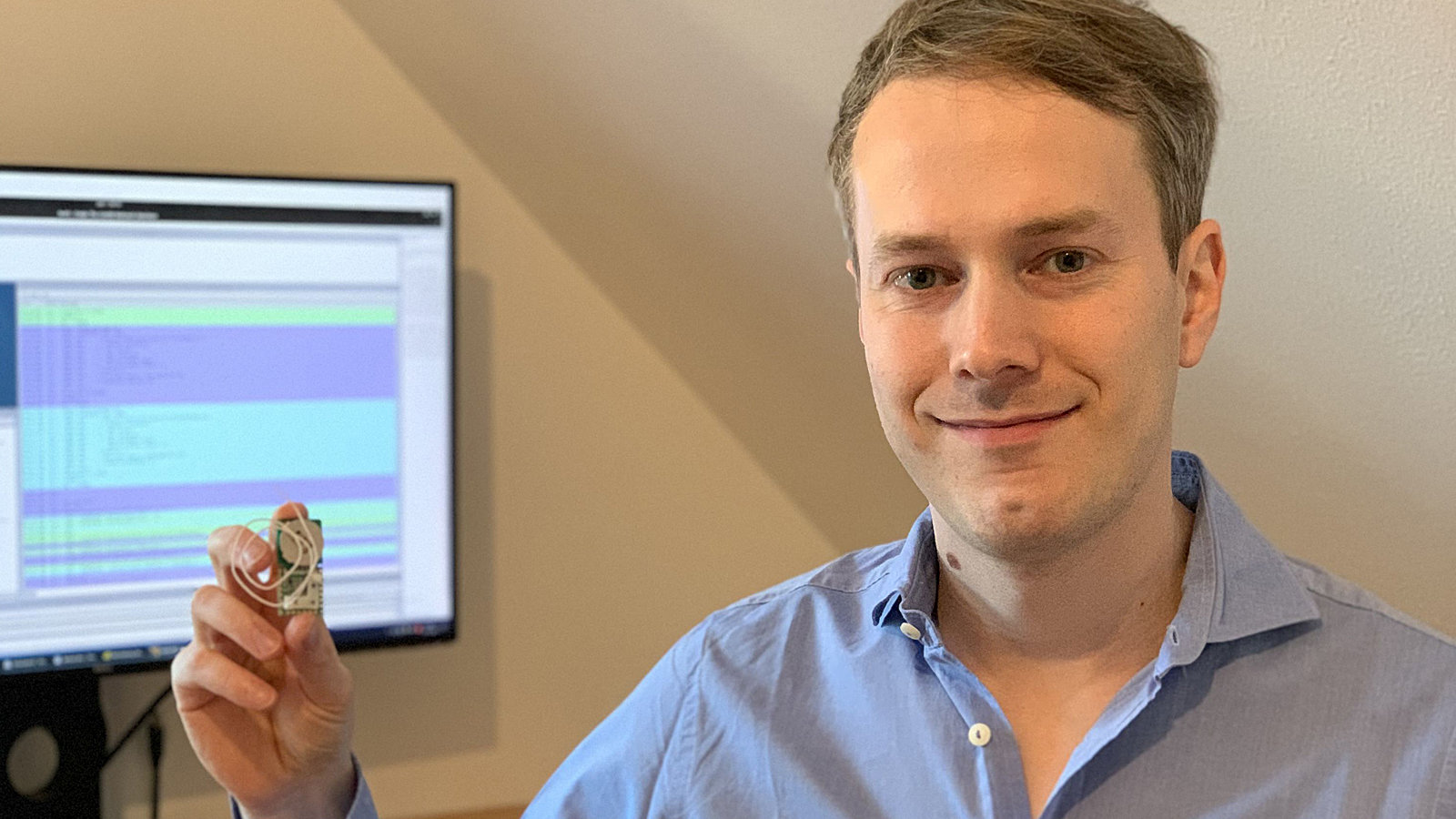Researching the Networked World of the Future
Thanks to DFG funding, university award winner and staff member Dr. Philip Parsch will be a postdoctoral researcher at the University of Chicago as of March 2020
Intelligent traffic lights, networked commuters or dynamic recognition of traffic jams – the realm of transportation is becoming more digital and more networked in the age of the “Internet of Things”. Yet, networking is anything but easy – it places very high demands on the underlying communication infrastructure, since different devices need to be interconnected and they all have different requirements.
Dr. Philip Parsch, research fellow at the Professorship of Computer Architectures and Systems at Chemnitz University of Technology, is researching the networked world of the future. Parsch, who won the 2019 Chemnitz University of Technology University Prize, has been awarded a stipend from the German Research Foundation (DFG) for his application-oriented research on the Internet of Things. In the scope of this stipend, Parsch will assume a postdoctoral fellowship at the University of Chicago as of March 2020.
Reacting more effectively to dynamic situations
In addition to diverse sets of dynamic situations in everyday life, networking is made more difficult by high susceptibility to radio interference and the high mobility of participants. The research that Parsch is conducting focuses on so-called self-adaptive protocols, which can reconfigure themselves automatically and are thus able to dynamically react to various situations. “We combine control engineering and machine learning to monitor the performance of the network in the background and then change the appropriate parameters,” explains Parsch.
“Designing self-adaptive protocols is by no means simple, there are many hurdles,” explains Parsch. “It is difficult to regulate a distributed network, because the communication between network components can be interrupted at any time.” An energy and time-consuming exchange of information and data as well as limited hardware resources makes the process even more difficult – a challenge that the Chemnitz scientist is eager to face.
The DFG stipend holder, along with his supervisor in Chicago, Prof. Henry Hoffmann, will study the advantages and disadvantages of this technology, as well as how to best implement specific methods.
About Dr. Philip Parsch
Dr. Philip Parsch studied from 2007 until 2013 electrical engineering at the Technical University of Munich and he specialised in the field of “Control Engineering and Embedded Systems”. Since 2013, Parsch has been working as a research assistant at the Professorship of Computer Architectures and Systems at Chemnitz University of Technology. In 2019 he completed his doctorate on the topic of “On Enforcing Reliability in Unidirectional WSNs: A MAC-Based Approach”. He received the 2019 Chemnitz University of Technology University Prize for his dissertation.
Matthias Fejes
08.01.2020





